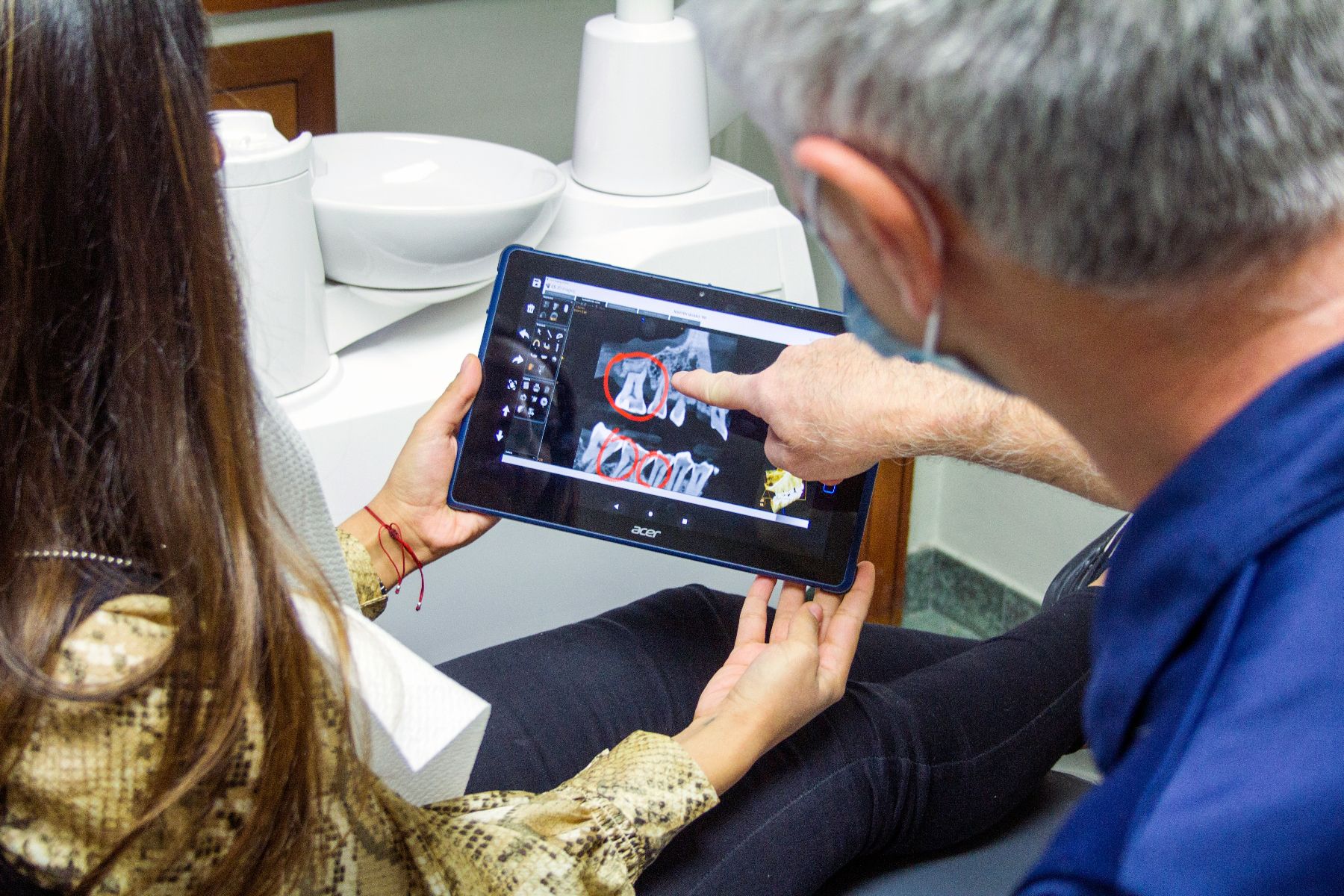Dental implants are a widely used, modern solution for replacing missing teeth. Every year, countless individuals regain their confidence and smile thanks to this treatment. While implants provide a long-lasting and functional solution, their placement is a surgical procedure. As with any surgery, there are potential risks, making it crucial to be aware of possible complications. One such complication is peri-implantitis. Without timely and proper treatment, this condition can lead to severe problems. In this article, you will learn what peri-implantitis is, how to recognize it, prevent it, and treat it.
What exactly is peri-implantitis?
Peri-implantitis is a severe infection that occurs around a dental implant. This condition goes beyond a superficial gum inflammation. It is an aggressive bacterial infection that gradually breaks down the supporting bone tissue around the implant, potentially causing permanent damage.
How can you recognize peri-implantitis?
Peri-implantitis can be identified through several symptoms. Be alert to the following signs:
- Swollen, painful, or bleeding gums, especially when brushing or touching them.
- Loose implants, often indicating advanced damage.
- Pain or increased sensitivity in the area surrounding the implant.
- Receding gums, causing parts of the implant to become visible.
- The presence of pus or discharge near the implant, which indicates an active infection.
Early detection of these symptoms is essential to prevent serious complications.
What causes peri-implantitis?
Peri-implantitis is caused by bacteria forming a biofilm on the implant surface. This biofilm gradually damages the surrounding bone and tissue. Research shows that the bacteria responsible for peri-implantitis are similar to those causing severe gum disease.
Certain risk factors, however, increase the likelihood of developing this condition:
- Inadequate oral hygiene – allowing bacteria to accumulate raises the risk of infection.
- Smoking – reduces blood flow to the gums and delays tissue healing.
- Poorly controlled diabetes – lowers resistance to infections.
- Lack of regular dental visits – leads to missed early warning signs.
- Genetic predisposition – some individuals are more prone to inflammation.
How can you prevent peri-implantitis?
Preventing peri-implantitis is crucial for protecting your implants. The following steps can significantly reduce your risk:
- Thorough oral hygiene: Brush your teeth at least twice a day and use tools like floss and interdental brushes. Antibacterial mouthwash can help fight bacteria.
- Regular dental check-ups: Visit your dentist at least twice a year for check-ups and professional cleanings. This helps detect issues early.
- Healthy habits: Quit smoking and manage chronic conditions like diabetes effectively. Combine this with a varied and nutritious diet to support overall health.
How is peri-implantitis treated?
The treatment method depends on the severity of the condition. Possible options include:
- Deep cleaning of the implant: Bacteria and biofilm are carefully removed.
- Antibiotic therapy: May be necessary to control the infection.
- Surgical correction: Severe damage to the bone and gums can be repaired through surgery.
- Removal of the implant: In extreme cases, where recovery is not possible, the implant may need to be removed.
A timely diagnosis increases the likelihood of successful treatment and prevents further complications.
Protect your implants with proper care
Peri-implantitis is a serious condition that can jeopardize both your implants and oral health. Fortunately, maintaining good oral hygiene, scheduling regular dental visits, and adopting a healthy lifestyle can significantly lower the risk of this complication.
Do you experience pain, bleeding, or a loose implant? Contact your dentist immediately. Early intervention can make a significant difference in preserving your implants and maintaining your oral health.
Do you have questions about peri-implantitis, dental implants, the treatment, or your options? Contact us. We are happy to help!
